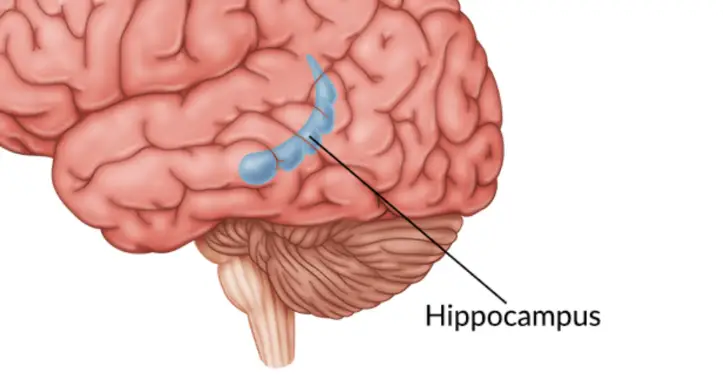The Hippocampus and Healing from Trauma
The hippocampus is partly responsible for learning, memory, and contextualizing life. Pretty important, but there are already two strikes against it: the hippocampus develops after the amygdala and is inhibited by cortisol. While toddling around before kindergarten, your amygdala worked, and the hippocampus could not help store the memory or downregulate your amygdala. It happens to all of us, and it is called small t trauma.
Only once we are 4 or 5, the hippocampus comes online, and memory is possible. After that, you can remember trauma rather than just store it in your body and brain.
What role does the hippocampus play in healing from trauma?
What is the Hippocampus?

The hippocampus stores learning and memory; it is responsible for emotional memory processing. Trauma may cause defenses that are adaptive but draining in the long run. That is, what seems like dysfunctional symptoms (say, PTSD) are really defenses against the trauma.
The hippocampus shrinks in size after trauma. Since what wires together fires together, we assume that a physically smaller hippocampus is less effective, and it is correlated and caused by trauma.
What is the hippocampus? The hippocampus is part of the limbic system and regulates memory (encoding and consolidation), learning, and navigation in space. Neuroplasticity is easily demonstrated in the hippocampus in fMRI (implying it is central to neuroplasticity).
This hippo carries memories being stored (encoding) and retrieved. It talks directly (when recalling events or recognition) and polysynaptically (which hits the hippocampus directly and via the corpus callosum and is important in facts and concepts). Consolidation happens during sleep.
Associative learning (where you learn quickly rather than slowly from a stimulus) is the hippo, too. This makes sense because when you live in trauma, and the hippocampus is affected, you do not learn any lessons rapidly.
Spatial navigation is a cognitive map of dangerous places. If you have been somewhere before and recognize it, the hippocampus becomes hypervigilant. If you have been there before and the amygdala sends a trigger, it is a primary source of freedom. It is responsible for everything when you have been in trouble.
You rely on your hippocampus to help you avoid suffering you have previously experienced.
Cortisol inhibits the hippocampus. This means stress stops the growth mindset (neuroplasticity).
Finally, once something becomes a habit, the hippocampus checks out.
Okay, one last thing.
Most excitingly, the hippocampus is responsible for creativity when relaxed and in good shape. Vision, hearing, touch, and more are functionally integrated despite being in separate brain parts when the hippocampus has low-frequency activity. Integrating your senses (combining two unexpected parts) is creativity and happens in a low-frequency healthy hippocampus.
What Happens to the Hippocampus after Trauma?
Trauma causes atrophy of the hippocampus. Smaller size means decreased function.
This may be more or less permanent in TBI, but the hope is that neuroplasticity is more abundant after non-physical trauma.
Normal Hippocampal Function
A better understanding of normal hippocampal function helps understand how it becomes dysfunctional after trauma.
The hippocampus helps recall old memories or create new ones. It is a part of the limbic system and helps regulate emotional responses. The hippocampus is a small, C-shaped structure. It sits protected and embedded in the temporal lobe below the cerebral cortex.
The hippocampus plays a vital role in many functions, such as memory, learning, spatial navigation, and behavior. However, the main role of the hippocampus is consolidating and encoding memories.
Signs of hippocampal damage may include:
- Conversational issues
- Misplacing items
- Poor decision making
- Trouble recalling new and/or old memories
- Forgetting what they already told you or asking the same questions multiple times
- Difficulty following directions
- Getting lost in familiar places
- Decreased personal hygiene or forgetting to take care of oneself
Neurological Diseases Associated with Hippocampal Dysfunction
Traumatic brain injury (TBI), Alzheimer’s disease, and depression are associated with hippocampal dysfunction. Essentially, any issue with long-term and short-term memory features hippocampal injury.
Atrophy is expected, and prognosis depends on the degree of neuronal loss.
Depression
Does depression cause the shrinkage of the hippocampus, or is a small hippocampus partially responsible for causing depression?
Stress-Induced Cognitive Dysfunction
Stress is implicated in depression and hippocampal dysfunction.
Memory and other cognitive issues may be due to decreased neuroplasticity in the hippocampus after stress.
Alzheimer’s and the Hippocampus
Don’t take it to the bank but the prognosis of Alzheimer’s may depend on hippocampal dysfunction.
How to Heal the Hippocampus from Trauma

To heal the hippocampus:
- Connection and relationships with others
- Focus on providing emotional support to others
- Know your strengths and priorities
- Continue hobbies and exercise
- Hope or optimism, or religion
- Set better boundaries
- Be open to daily changes
- Laugh, dance or sing at least twice a week
- Ask for help
- Actively solve your problems
- Be audaciously authentic

The Hippocampus and Healing from Trauma
Trauma affects the amygdala, and the supporting actor is the hippocampus.
Healing from trauma is a drama and tragedy, but it is better understood by knowing just a little about your hippocampus. Neurobiochemistry has to explain the drama or the mundane in your life; where else would it be? A better understanding of the hippocampus helps you heal trauma.
The hippo is great at neuroplasticity and may provide other parts of your brain the same superpower. It may even be the key to anti-aging. Seriously, but it also helps you heal from trauma.
Early in life, you don’t have access to your hippocampus. After about five, it helps with memory and so much more. The hippocampus is a center of neuroplasticity. A growth mindset increases hippocampal function.
Before five, you are afloat at sea and might find your response to trauma determined by all sorts of things out of your control. Now that you know the hippocampus better, you do the hippocampus better.

